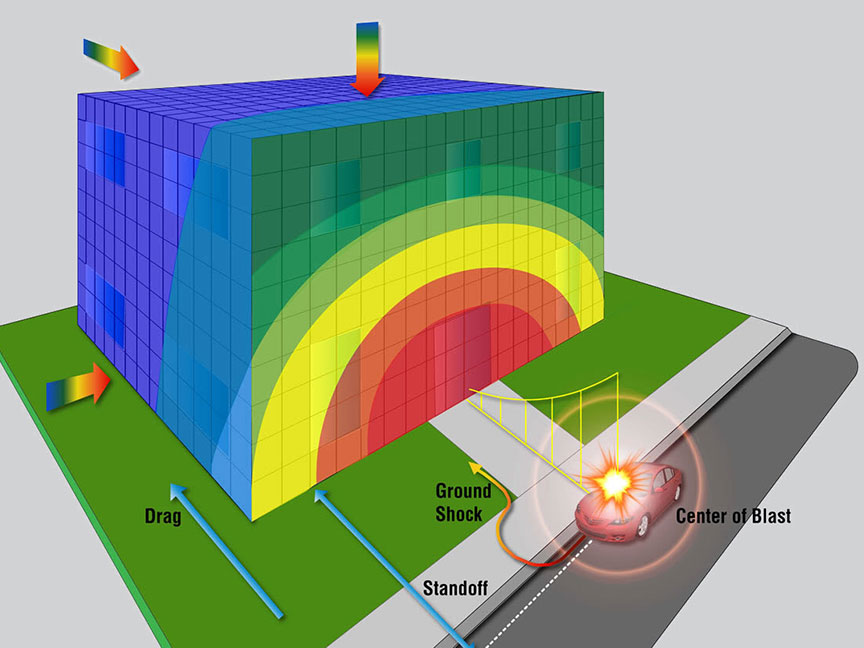
Did you know that according to storefrontsafety.org, “every year in the United States there are as many as 22,000 crashes into stores, offices, bus stops, shopping centers, post offices, restaurants, and storefronts?
More than 4,000 pedestrians, patrons, and employees are severely injured each year, and tragically preliminary data show as many as 500 deaths result from these largely preventable accidents.”
Additionally, commercial buildings such as schools, hospitals, and office buildings have such a constant inflow of visitors that security requires more planning than ever.
How can you be sure that your employees, customers, and clients are protected?
Ensuring building security and complying with regulations is essential to making sure your assets are protected. A strong security system can help protect from theft, vandalism, and other types of damage. Many industries also have specific physical security requirements that must be met.
CPTED (Crime Prevention Through Environmental Design)
CPTED focuses on creating safe environments by using architectural design, lighting, and other factors to reduce criminal activity. The core principles of this approach are:
- Natural surveillance: Placing architectural features, activities, and people in spaces to maximize visibility. This includes landscaping in such a way that it reduces hiding places for intruders, and allows clear visibility through fences and windows.
- Natural access control: Having designated ingress and egress points, shaded areas near entrances that allow for more surveillance, and visible hallways and foyers are examples of natural access control.
- Territoriality: This tactic discourages crime by clearly marking the boundaries of an area, such as transitions between private, semi-private, and public areas, and signage that designates private vs. public spaces.
- Activity support: Discouraging actions such as loitering, and having a design layout that promotes an open field of view.
- Maintenance: Keeping up with broken windows, overgrown landscaping, inadequate fencing, and worn or malfunctioning locks.
Security Bollards
Security bollards are large posts you often see at the doorways of stores. These are used as both physical and visual barriers, and can protect lives and property by controlling traffic settings.
Vehicle ram-raids have been a security concern for stores for decades, and threaten the safety of employees as well as customers. The damage caused in these incidents is often very extensive and costly, so security bollards are a must for your commercial property.
Blast Resistant Engineering
Make sure your physical security engineer considers blast resistant building practices! In 2020, the city of Beirut suffered a tragic explosion at a port warehouse, which resulted in 150 dead and 5,000 injured. Buildings are meant to shelter the people inside of them, but when they’re in such close proximity to an explosion, the building materials themselves become the weapons.
You can prevent this type of tragedy in a few ways:
- Standoff distance – This is the distance to the source of the blast. If the potential blast zone can be predicted based on what kind of hazards are in the area, death and injury can be avoided.
- Blast-resistant materials – Like in the case of the surprise Beirut explosion, if the location of blast source can’t be predicted, the second most effective protection is choosing building materials that can resist explosive force. Certain materials are made to resist a blast, and cut down on the number of flying shards and debris in the event of an explosion.
The IEI Physical Security Advantage
IEI routinely conducts peer reviews of both structural and physical security designs on behalf of the federal government. Our expertise not only matches that of world-renowned experts in the physical security field, our extensive engineer of record experience brings a unique blend to the project team.
IEI takes a wholistic approach that includes all disciplines. We know what it takes to ensure the physical security requirements get incorporated into the construction documents regardless of discipline. Contact us today to find out how we can help you!
